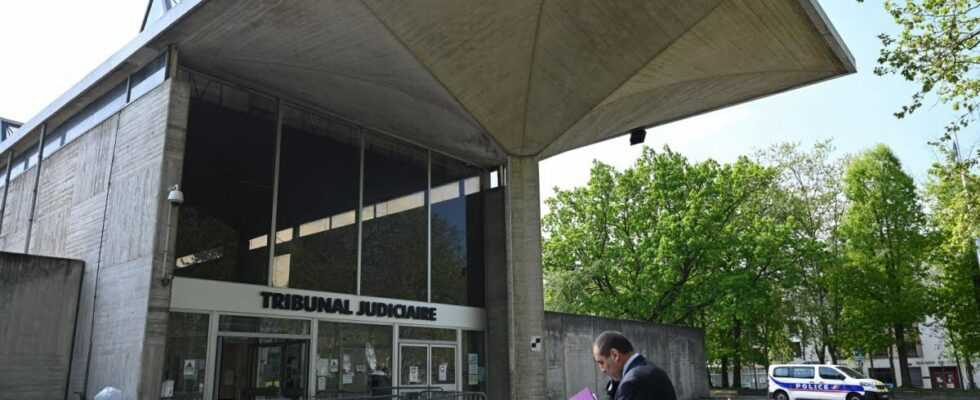On the second day of the trial of the Brétigny rail disaster, the court questioned SNCF and SNCF Réseau at length about their distribution of security missions, technical but essential debates to establish their possible responsibilities in the derailment.
What contractual links did the two entities have at the time of the events? What respective missions and obligations?
For the president, Cécile Louis-Loyant, understanding this history of relations between the two companies is essential for the trial, because “the decisions taken 20, or 30 years ago, had consequences in 2013”.
That year, on July 12, the reversal of a steel splint – a sort of large staple connecting two consecutive rails – derailed an Intercités train at Brétigny-sur-Orge station (Essonne), causing the death of 7 people. and injuring over 400.
The challenge of this second day of the trial, scheduled for eight weeks, was therefore to begin to draw the perimeters of the National SNCF Company (criminal heiress of SNCF Infra, responsible for maintenance) and of the SNCF Réseau track manager (formerly Réseau Ferré de France, RFF), to establish their possible responsibilities in the drama.
Prosecuted for “manslaughter” and “involuntary injury”, they each incur a fine of up to 225,000 euros.
Before delving into the details of their relationship, the president noted a striking financial imbalance, in her eyes: “a vicious circle” favoring maintenance over the renewal of tracks, she described on Tuesday, reports to the support.
Who was responsible for safety at the time: RFF or SNCF Infra?
The prosecution accuses SNCF Réseau of “faults” having “led to the absence of early renewal” of the track or to “insufficient staffing”, as well as failures “in the organization, control and implementation maintenance operations” to the Société Nationale SNCF.
For a lawyer for the civil parties, Me Gérard Chemla, the two companies were “jointly responsible”.
But if SNCF Réseau (ex-RFF) admitted having “a safety approval” like SNCF Infra, its legal representative specified that “the maintenance of the installations” was “among the missions” of SNCF Infra, thus seeming to dismiss this responsibility of its perimeter.
More specifically, “when there are measures to be taken, these measures are taken by the maintainer, the SNCF”, explained Robert Mathevet, the legal representative of the SNCF network.
And, does SNCF Réseau have the possibility of checking whether SNCF “is doing what is necessary for safety”? continued the lawyer for the civil parties. “There are audits distributed to SNCF” but “we have no operational responsibility”, insisted the representative of SNCF Réseau.
“Is RFF a company like any other? “, asked him, moreover, his lawyer, Antonin Levy. “No, it is subject to state control, in its decisions, it obeys its sole shareholder and its supervision,” replied SNCF Réseau.
“That day, the unthinkable happened”
Alain Autruffe, the representative of the National SNCF Company, should be questioned on Wednesday, before the presentation of the third defendant, a railway executive, the only natural person to appear. Alain Autruffe, however, spoke earlier during the hearing to address his thoughts to the victims, while contesting the alleged faults.
He said he shared their “pain, anger and rage”, describing “a trauma that will live on in our memories”. He also recalled that the SNCF “does not share the theses of the legal experts”, who notably support a failure in maintenance. Robert Mathevet (SNCF Réseau) did the same.
“Throughout the trial, I will challenge the faults that are alleged” at SNCF Réseau, he explained, “but I want to assure” the victims and their families “that the feelings are sincere when I address these few words. “We cannot forget that, that day, the unthinkable happened,” he said.
